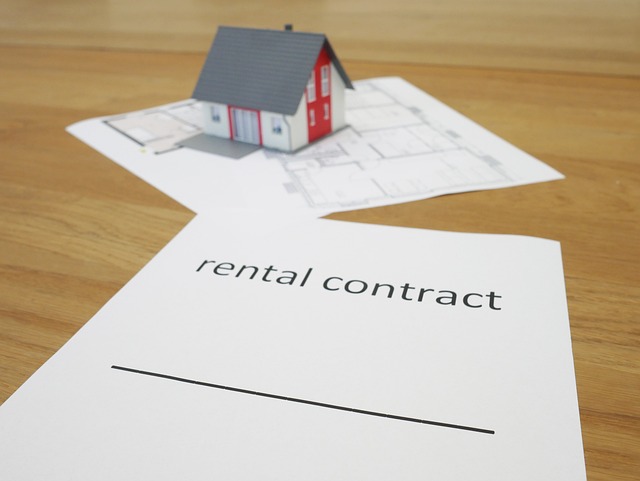Curious About Your Home’s Worth? Here’s What to Know in 2025
Understanding your home’s value doesn’t require a real estate agent or expensive services. Today’s online tools provide homeowners with a starting point to explore their property’s estimated price based on location, market trends, and more. Learn what to look for and how to start.

How to Check Your Property Value Online
Digital platforms have revolutionized how homeowners access property valuations. Popular websites like Zillow, Redfin, and Realtor.com offer automated valuation models that analyze recent sales data, property characteristics, and local market trends to generate estimates within seconds. These tools pull information from public records, including square footage, lot size, number of bedrooms and bathrooms, and recent renovations.
To get started, simply enter your address on these platforms. Most will display an estimated value range along with a confidence score indicating how reliable the estimate might be. Keep in mind that these automated tools work best in areas with frequent home sales and standardized properties. Rural areas or unique homes may receive less accurate estimates due to limited comparable sales data.
What Affects Your Home’s Current Value
Multiple factors influence your property’s market value, and understanding these elements helps you interpret online estimates more effectively. Location remains the most significant factor, encompassing neighborhood desirability, school district quality, proximity to amenities, and local economic conditions. Recent comparable sales in your area directly impact valuations, as do broader market trends affecting your region.
Property-specific characteristics also play crucial roles. Square footage, lot size, age, condition, and recent improvements all contribute to value calculations. Unique features like swimming pools, finished basements, or energy-efficient upgrades can positively impact worth, though their value varies by local market preferences. External factors such as interest rates, local employment rates, and seasonal market fluctuations also influence property values throughout the year.
Free and Paid Tools for Homeowners
The market offers various options for property valuation, ranging from completely free resources to premium services with enhanced features. Free tools include major real estate websites’ automated valuation models, county assessor websites showing tax assessment values, and some basic comparative market analysis tools. These provide good starting points but may lack detailed accuracy or recent data updates.
Paid services typically offer more comprehensive reports, including detailed comparable sales analysis, neighborhood trend data, and professional-grade market insights. Some platforms provide subscription-based access to multiple property reports, while others charge per individual report. These services often include additional features like rental income estimates, investment analysis, and market timing recommendations.
| Service Type | Provider Examples | Cost Estimation |
|---|---|---|
| Free Online Tools | Zillow Zestimate, Redfin Estimate | $0 |
| Enhanced Reports | HomeLight, PropertyShark | $15-50 per report |
| Professional Appraisal | Local licensed appraisers | $300-600 |
| Broker Price Opinion | Real estate professionals | $75-200 |
Prices, rates, or cost estimates mentioned in this article are based on the latest available information but may change over time. Independent research is advised before making financial decisions.
When to Get a Professional Appraisal
While online tools provide convenient estimates, certain situations require professional appraisals for accurate valuations. Mortgage lenders typically require licensed appraisals for refinancing or home purchases, as these meet regulatory standards that automated tools cannot. If you’re involved in legal proceedings like divorce settlements, estate planning, or tax disputes, professional appraisals carry the legal weight necessary for these situations.
Consider professional appraisals when online estimates show significant variations or when your property has unique characteristics that automated tools struggle to evaluate. Homes with extensive custom features, unusual architecture, or properties in areas with limited sales data benefit from an appraiser’s expertise. Professional appraisers conduct physical inspections, consider local market nuances, and provide detailed reports explaining their valuation methodology.
How to Use Your Home Value Estimate for Refinancing or Planning
Home value estimates serve multiple practical purposes beyond satisfying curiosity. For refinancing considerations, understanding your current value helps determine available equity and potential loan-to-value ratios. If your home’s value has increased significantly since purchase, you might qualify for better refinancing terms or eliminate private mortgage insurance requirements.
Strategic financial planning also benefits from regular value monitoring. Homeowners can track their investment performance, make informed decisions about improvement projects, and plan future moves based on market timing. Insurance coverage reviews should incorporate current home values to ensure adequate protection. Additionally, understanding your property’s worth helps evaluate whether additional investments in renovations or improvements align with potential return expectations and local market conditions.
Accurate home valuation combines multiple information sources and considers your specific needs. While online tools provide excellent starting points for general estimates, important financial decisions benefit from professional input. Regular monitoring of your property’s value, whether through free online tools or periodic professional assessments, keeps you informed about one of your largest financial assets. Remember that all estimates represent snapshots in time, and actual market value ultimately depends on what buyers are willing to pay in current market conditions.




